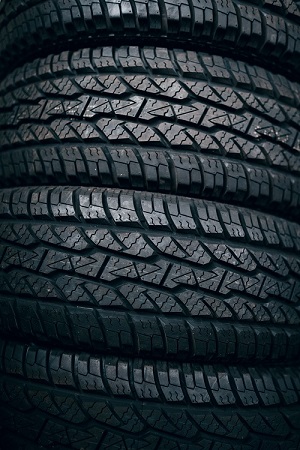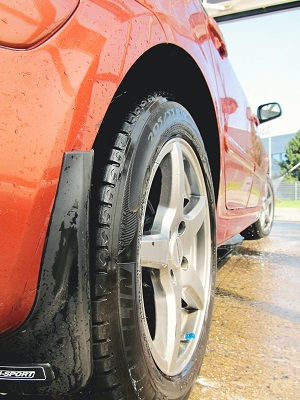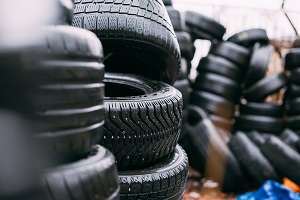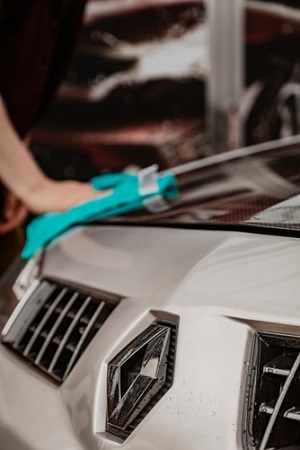Posted on 6/10/2021

The power steering system relies on several mechanical parts. Power steering systems function to provide easier manoeuvrability and a better degree of control over the vehicle, making driving all the more effort-free. It is sometimes referred to as the steering assist system or SAS. Without it, steering would be physically strenuous and challenging to perform. Power steering systems can either be hydraulic, electric or a combination of the two. Steering a vehicle involves getting its front wheels to turn synchronously, either to the left or right. This is achieved with the help of different gear systems. The two main steering gear systems are the rack and pinion and the recirculating ball steering gear. The power steering system uses intermediate electric or hydraulic devices to reduce the effort necessary to steer the front wheels of the vehicle side to side. It multiplies the force applied by the driver through the steering wheel to achieve a smooth and quick directional change of t ... read more
Posted on 5/13/2021

It has happened to most of us. We're on our way to school or work, and we hear that dreaded sound of a flat tire or a blowout. Some sort of debris in the road has left you with a damaged tire and an immobile vehicle. This situation always brings on frustration. Now you must deal with getting your car to a tire repair shop. The tire has to be properly assessed to perform the necessary repair or replacement service. Depending on where the puncture is located and the severity of the damage, the tire will either only need a simple repair or be replaced. Tires are crucial to the safe performance of our vehicles. For the continued safety of your car, mechanics must utilize the best possible way to fix your tire. The availability of options leads to some debate over what is the "best" way to fix a tire and keep your vehicle safe. Is a plug repair sufficient, or do I need to replace the tire? Here are some considerations to determine which tire repair method is the best option for you. When ... read more
Posted on 4/15/2021

Determining your tire age is very important for your driving safety. Driving with a tire over six years old could be putting you and your passengers in danger. Tires dry rot with age from the inside out. When the tire gets older, it is exposed to the elements, and the strength of the bond between the rubber and the steel belts is reduced. This can cause cracks in the rubber, which may appear on the tire’s surface and can also appear out of sight within the structure of the tire. Keeping a record of your tires and understanding their age will help you save money on repairs and take proper care of your vehicle. Driving on damaged tires is extremely dangerous and can lead to a fatal accident. It is recommended that drivers have a professional auto mechanic inspect all tires that are in use for six years or more to ensure they are still safe for use. Proper tire maintenance will also help to keep your tires working effectively and lasting longer. Keep up with tire rotation, tire repairs ... read more
Posted on 9/28/2020

The tires on your vehicle and vehicles across the world, was a result of multiple inventors across several decades. Robert William Thomson invented the first vulcanized rubber pneumatic tire in 1845, but it was too costly and ahead of its time and attracted little interest. In the 1880’s John Boyd Dunlop was the inventor of the first practical inflatable tire for bicycles. Several years later, André Michelin and his brother Edouard were the first to use pneumatic tires on an automobile, but they were not successful in making them durable. It wasn't until Philip Strauss invented the combination tire and air-filled inner tube in 1911 that pneumatic tires could be used on automobiles with success. Tires are made of strong, flexible rubber attached to the rim of a wheel to provide a gripping surface for traction and serve as a cushion for the wheels of a moving vehicle. Tires offer your first and only contact with the road and allow effective steering, braking, accelerating, and turning ... read more
Posted on 9/11/2020

We live busy lives and often don’t have time for tasks like cleaning our car. Cleaning your car is an important aspect of car maintenance that many don’t realize the benefits of keeping up with. A clean car is not only aesthetically pleasing, but it can also increase the resale value of your car. While some clean their cars themselves, others pay a professional car wash to do the work for them. Ideally, you should get your car cleaned on a weekly basis. However, many car owners clean their cars only when it is dirty. How frequently you drive your car also matters. As a general principle, the more miles that you drive, the more frequently you will need to clean the car. The climate and air temperature are also important considerations. Snow, salt and grit from the roads can quickly erode and damage your paint work, and high temperatures can cause erosion to be accelerated, as chemicals in contaminants become more active in hot temperatures. Why You Should Clean Your Car More Often ... read more